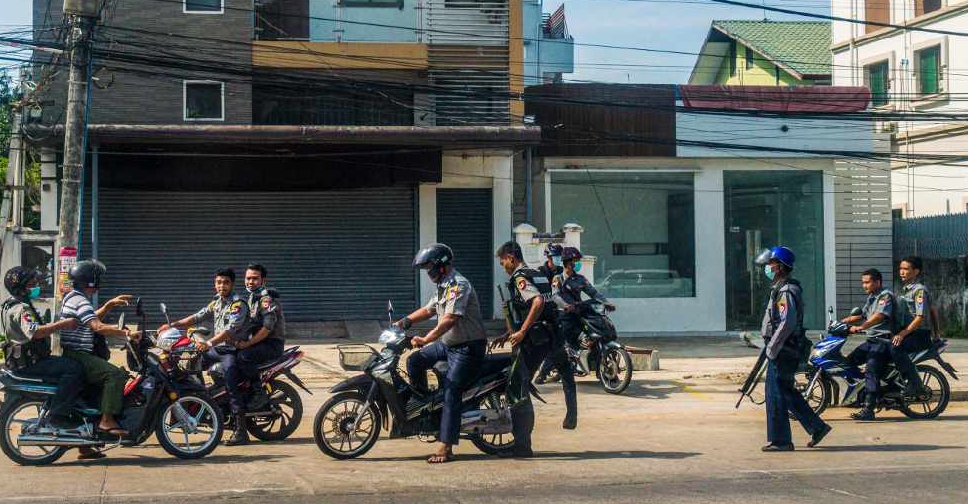
Myanmar's army battled local militia fighters in the northwestern town of Mindat on Saturday, residents said, to try to quell a rebellion that has sprung up to oppose the junta which seized power in the Southeast Asian country in February.
The fighting is some of the heaviest since the coup and underlines the growing chaos as the junta struggles to impose order in the face of daily protests, strikes and sabotage attacks after it overthrew elected leader Aung San Suu Kyi.
"We are running for our lives," one resident told Reuters from Mindat, a hill town just over 100 km from the border with India.
"There are around 20,000 people trapped in town, most of them are kids, old people," the resident added. "My friend's three nieces were hit by shrapnel. They are not even teens.”
The junta imposed martial law in Mindat on Thursday and then stepped up attacks on what it called "armed terrorists". A junta spokesman did not answer calls requesting comment on the fighting on Saturday.
Army-controlled Myawaddy television said around 1,000 "unscrupulous people" had attacked with small arms and homemade grenades in recent days, and that some members of the security forces were killed and others missing. It said security forces would work day and night to bring order.
Fighters of the Chinland Defence Force retreated as military reinforcements advanced with artillery bombardments and helicopter attacks, a member of a local administration set up by the junta's opponents told Reuters by phone.
Five civilians had been killed in Mindat in the past two days, said Doctor Sasa, minister of international cooperation in a shadow National Unity Government set up to rival the junta.
"The military’s use of weapons of war against civilians, including this week in Mindat, is a further demonstration of the depths the regime will sink to to hold on to power," the US Embassy in Myanmar said in a statement. "We call on the military to cease violence against civilians."
Myanmar already had some two dozen ethnic armed groups, who have waged war for decades against an army dominated by the Bamar majority.
The Chinland Defence Force was set up in response to the coup. Facing one of the region's best-equipped armies, its fighters are armed largely with homemade hunting guns. Reuters was unable to reach the group for comment on Saturday.
At least 788 people have been killed by the junta's security forces in crackdowns on protests against its rule, according to an advocacy group.
The military, which disputes that number, imposes tight restrictions on media, information and the Internet. Reuters cannot independently verify arrests and casualty numbers.
Junta spokesman Zaw Min Tun told a news conference that 63 people had been killed recently in what he described as various "terrorist attacks" by the administration's opponents, appealing to people to inform on the attackers.
Anti-junta protests were held in the main city of Myanmar and many other towns on Saturday.
A poet who had criticised military rule had been soaked in gasoline and burned to death in the central town of Monywa on Friday, residents said. Sein Win was the third poet to be killed in the town, a stronghold of opposition to the junta.
The army took power alleging fraud in an election won by Suu Kyi's party in November. Its claims of irregularities were rejected by the electoral commission.

 UK inquiry finds 'chilling' cover-up of infected blood scandal
UK inquiry finds 'chilling' cover-up of infected blood scandal
 Iranian President Raisi killed in helicopter accident, state media says
Iranian President Raisi killed in helicopter accident, state media says
 ICC prosecutor seeks arrest warrants for Israeli, Hamas leaders
ICC prosecutor seeks arrest warrants for Israeli, Hamas leaders
 Assange given permission to appeal against US extradition
Assange given permission to appeal against US extradition
 Israel intends to broaden Rafah sweep, Defence Minister tells US
Israel intends to broaden Rafah sweep, Defence Minister tells US




